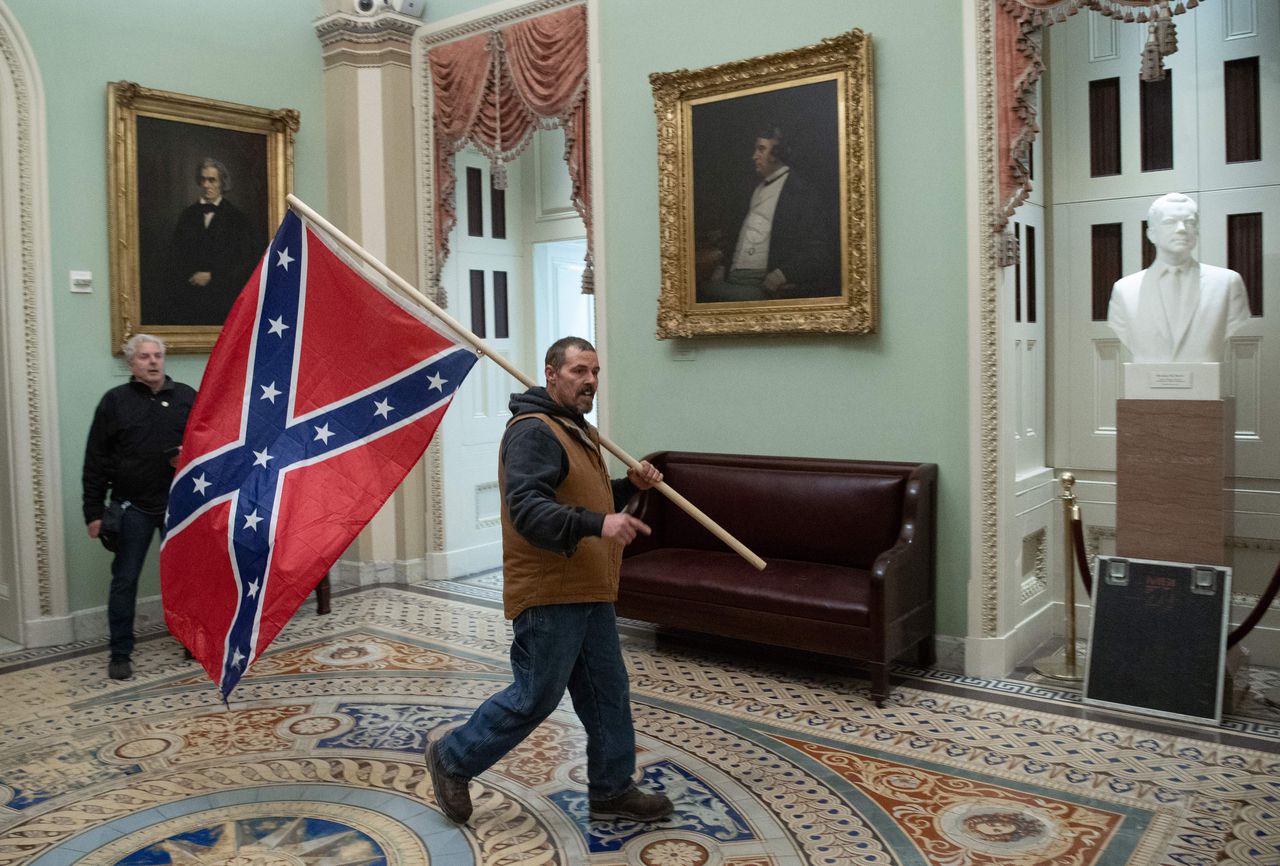I am an academic who researches, writes, and teaches about the human relationship with the ecological environment within which we live and on which we depend. I recognize that that relationship is deeply troubled, and I want to be working on untroubling it.
Politics — the shaping and implementation of policy to steer collective and institutional action — is one of the ways, and an essential way, to do that. (Others include the arts, the sciences, technological innovation, and philosophy/spirituality.) But politics is complicated and nowadays gets in the way of that “untroubling” more often than it facilitates it.
Yesterday’s Trumpist insurrection at the U. S. Capitol is perhaps symbolic of how politics has “gotten in the way.” But nothing that happened yesterday surprised me.
Disinformation and propaganda have been part of the “conservative” response to ecological news for decades; Donald Trump has simply mastered it for the goal of maintaining his power at the head of a revanchist form of authoritarian nationalism.
Changes in politics, facilitated by changes in media, have helped propel the capacity for such movements to develop and thrive. In turn, they make it impossible for those of us who are dedicated to “untroubling” the relationship between humans and “nature” to carry on our work.
That is why, both in this blog and in my teaching and research, I have come to focus so much on politics and on media. Closely watching both of those realms has convinced me that the fate of the world is being wrested away — from those who care for the world, for the earth, for life, and for beauty, by those who are conjuring unsustainable illusions. In many cases, as with yesterday, those illusions are plainly lies.



But it has also convinced me that the fate of the world rests between contending uses of the same tools employed by those conjurors — the tools of media, imagination, narrative, and passion, as well as reason. If some are using these tools to conjure illusions, the “magic” they are practicing — a magic of fears, lies and half-truths, and outworn but (to many) comforting myths (like QAnon’s “Storm” and the return to the Confederate States of America, depicted above in yesterday’s events) — must be counteracted by another magic, one that conveys the hope, the joy, and the real possibility of building a world of respect, dignity, beauty, social justice, and ecological flourishing.
The latter magic is more challenging to produce. It is also challenging to the halls of power, such as those represented by the U. S. Capitol, and I harbor no illusions that that building will ever be the epicenter of the great changes we need. But the elements of that necessary magic can be found all over the world, and it inspires my continued work.
In the meantime, I think of this last episode of Trumpism as the final scene of Werner Herzog’s Aguirre, the Wrath of God, in which the delusional conquistador, abandoned and drifting on the Amazon River, remains convinced he is about to conquer a new kingdom of gold and to rule it with his daughter. Neither she nor anyone else remains alive with him by the end, and he addresses the monkeys sharing his raft as if they are his subjects.
Many of Trump’s subjects and enablers remain with him (both in social media and in the Republican party, as we saw last night), but it is a passing show. Similarly, the delusions of ecological invincibility that have shaped centuries of colonialism and extractive capitalism will get swallowed up by the jungle of hopes and fears swirling in the minds of our latter-day Aguirres.
Yesterday’s events may mark a turbulence in this country’s history, but it is a minor episode in the real brewing storm, a storm that we will need all our faculties and resources to weather. The task before us remains to build the collective capacity to do that.